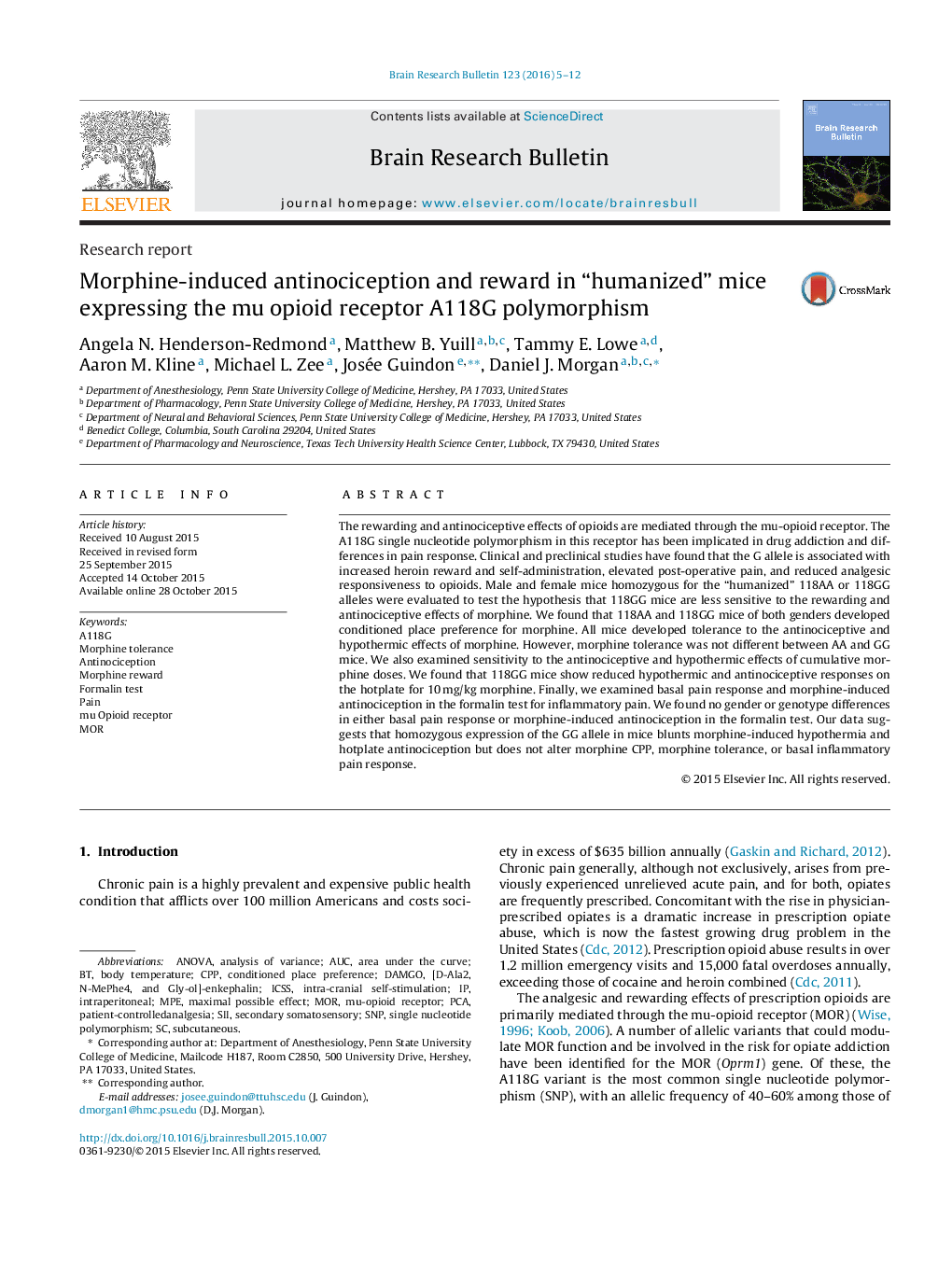| کد مقاله | کد نشریه | سال انتشار | مقاله انگلیسی | نسخه تمام متن |
|---|---|---|---|---|
| 4318609 | 1613233 | 2016 | 8 صفحه PDF | دانلود رایگان |

• Expression of the A118G polymorphism in mice does not disrupt morphine reward.
• The A118G polymorphism reduces morphine-induced antinociception.
• The A118G polymorphism does not affect morphine tolerance.
• The A118G polymorphism does not change the basal response to inflammatory pain.
The rewarding and antinociceptive effects of opioids are mediated through the mu-opioid receptor. The A118G single nucleotide polymorphism in this receptor has been implicated in drug addiction and differences in pain response. Clinical and preclinical studies have found that the G allele is associated with increased heroin reward and self-administration, elevated post-operative pain, and reduced analgesic responsiveness to opioids. Male and female mice homozygous for the “humanized” 118AA or 118GG alleles were evaluated to test the hypothesis that 118GG mice are less sensitive to the rewarding and antinociceptive effects of morphine. We found that 118AA and 118GG mice of both genders developed conditioned place preference for morphine. All mice developed tolerance to the antinociceptive and hypothermic effects of morphine. However, morphine tolerance was not different between AA and GG mice. We also examined sensitivity to the antinociceptive and hypothermic effects of cumulative morphine doses. We found that 118GG mice show reduced hypothermic and antinociceptive responses on the hotplate for 10 mg/kg morphine. Finally, we examined basal pain response and morphine-induced antinociception in the formalin test for inflammatory pain. We found no gender or genotype differences in either basal pain response or morphine-induced antinociception in the formalin test. Our data suggests that homozygous expression of the GG allele in mice blunts morphine-induced hypothermia and hotplate antinociception but does not alter morphine CPP, morphine tolerance, or basal inflammatory pain response.
Journal: Brain Research Bulletin - Volume 123, May 2016, Pages 5–12